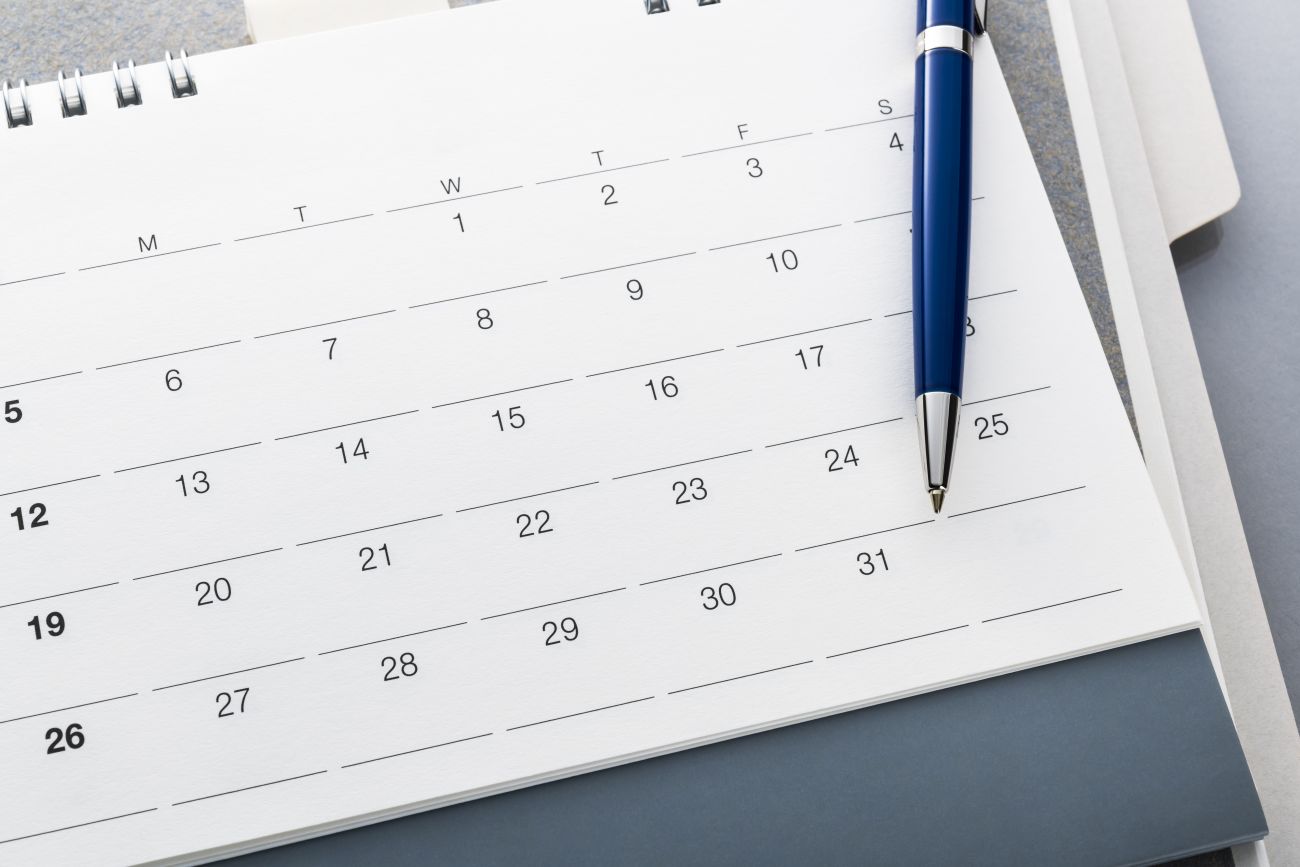Keeping on top of your daily schedule can feel daunting. There are tons of different methods, so it’s easy to fall into a trap of using a popular method that just doesn’t work for you.
If you feel overwhelmed or find that you’re continually forgetting important appointments, tasks, or commitments, there’s nothing wrong with you. You’re just not using the right schedule.

Find the Right Method for You
There are two major schools of thought when it comes to scheduling: paper and electronic. Many people do a combination of both, but some diehards are firmly in one camp over the other.
One benefit of electronic scheduling is that it can sync across all your devices. If you have a particularly busy schedule or are dealing with a lot of changes on a regular basis, this is a useful feature. Some people stick with paper schedules because they like the look and find that they benefit from being able to jot things down without having to turn to their phones.
There’s no right answer. You just need to find the method that works for you.
Use Apple’s Calendar App to Share a Family Schedule
The benefit of using an electronic calendar becomes extremely apparent when you’re trying to share a calendar with a group of colleagues, a partner, or family. Apple’s Calendar app allows you to create a calendar that can be edited by multiple people. If there are any changes, they will be shared across all synced devices.
Apple keeps making new, useful updates for Calendar as well. You can now use Siri to input changes to the Calendar and get a reminder when it’s time to leave for an appointment or event.
If You Keep Forgetting, Write It Down
The reason why some people remain diehard paper fans — even as Apple releases more and more useful updates for their Calendar — is because writing has been found to trigger memory.
Research has shown that by writing something down, we’re essentially “rehearsing” the action, which helps us keep it at the forefront of our mind. It’s harder for something to creep up on us if we’ve already written it down.
If you find you keep forgetting things or are scrolling past important calendar notifications on your phone, try using a paper planner for a few weeks to see if writing things down helps improve your memory.
Make a To-Do List That Suits Your Working Style
Everyone agrees that making a to-do list is extremely important. It helps keep us focused when we’re feeling scattered and keeps important tasks at the forefront of our mind. A recent study from Baylor University even found that writing down a to-do list helped participants get more sleep.
In order to maximize the utility of a to-do list, make sure that you’re doing it in an order that works for you. If you’re a morning person, prioritize the most complex tasks first, then move down the list to tasks that require less effort. If you get your best work done in the afternoon or evening, schedule a few less intense tasks in the morning before getting to the meat of your to-do list later on in the day.
Review Your To-Do List the Night Before
The study from Baylor concluded that participants got more sleep after writing to-do lists because they felt more confident and reassured that their tasks would be taken care of. If we have unfinished tasks, we tend to worry about them at bedtime, which can lead to restlessness.
After “offloading” these thoughts on to our to-do list for the next day, participants reported that their sleep improved, which left them feeling rested and more focused the next day.
Plan out Your Daily Schedule
Another way that you can help yourself feel more organized is by planning out your day. If you go into the day with a list of tasks and no plan of how or when to get them done, you’re probably not using your time in the most effective way.
Unless you’re extremely busy, you don’t need to schedule yourself down to the minute, but it can be helpful to go into the day with a plan. Figure out when you’re going to run errands, check messages, respond to emails, and accomplish major tasks.
The more you plan ahead, the more likely it is that you’ll be able to get everything done.
Split Your Workday into Chunks
One issue that many people have is that they don’t schedule themselves breaks. It can be taxing to spend too much time on one thing and will quickly lead to fatigue and burnout.
If you find that you get frustrated early in the day, you may need to adjust the way you schedule your time. Many people have had success with the Pomodoro Technique, where you work 25 minutes on one task, then take a five-minute break.
If you don’t want to use a specific method of time management, try alternating harder tasks with easier, more mindless activities like paying bills or reviewing notes.
Group Similar Tasks Together
A great way to maximize your time at work is to group similar tasks and activities together. Some people do this by allocating one or two days a week that is just for meetings or running errands outside of the office.
If you have several regular phone calls over the course of a week, try and schedule them back to back. This allows you to get into the necessary headspace for these types of activities once instead of multiple times per week, which can eat up valuable time.
Set a Time Limit for Standard Tasks
Some people have found that setting a time limit on standard items like phone calls and regular meetings helps them to schedule their time more effectively. It ensures that you’re maximizing efficiency by accomplishing these tasks as fast as possible. Plus, it helps with scheduling because you’ll always know exactly how much time you need.
Start with a standard amount of time, like 10 minutes per phone call and 30 minutes for a regular meeting. Then, if you find that you’re often going over or under the time limit, adjust accordingly. Ideally, the amount of time should feel like enough to accomplish the business at hand, but not enough for idle chitchat.
Manage Your Email like a Pro
If you get a lot of emails, it can feel overwhelming. We see something come in and it’s on our mind until we deal with it. Plus, if you’re getting a high volume of email, this can make us feel scattered.
Avoid this feeling by implementing a new method of dealing with emails. If you see something come in that can be deleted or is spam, delete it immediately. Anything that requires a response that will take one minute or less, deal with right away. Save important emails for a specific time of the day and deal with them all at once.
Some people even use an extension for Gmail that allows them to pause notifications on incoming emails until a designated time.
Don’t Take Things like Exercise and Family Time for Granted
If family and personal time are important to you, it can be helpful to add them to your schedule just like you would any other commitment. It’s optimistic to think that your busy schedule will magically clear itself to accommodate your personal life.
If you’re serious about having a healthy work-life balance, you’ll need to schedule things like spending time with family and friends, exercise, and hobbies. That way, when the time comes, you’ll know that you have the time to really enjoy them.
Take Ownership of Your Own Schedule
Many people who have made their way up the corporate ladder rely on others to schedule their daily tasks. Even if you’re at that level, it can be truly beneficial to manage your own time.
Many people think that it will only add to the stress of their daily life. However, when they actually do it, it helps them feel an ownership of their time that gives them much-needed peace of mind.


